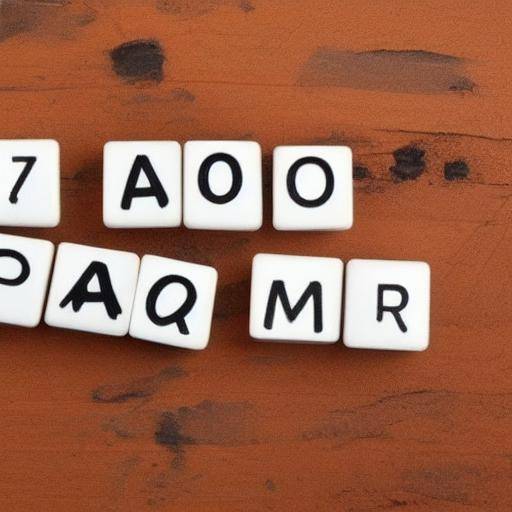
Physical exercise is a fundamental part of a healthy lifestyle, but sometimes finding the motivation to keep an activity routine can be challenging. Fortunately, music can play a crucial role in stimulating motivation during exercise. In this thorough review, we will explore in detail the impact of music on motivation during physical exercise, providing a thorough analysis and practical advice supported by experts and scientific studies.
Introduction
Have you ever experienced the feeling that a strong song drives you to give the best of yourself during an exercise session? This is not a casual coincidence; in fact, many studies have shown that music can have a significant impact on performance and motivation during physical activity. In this guide, we will break down the link between motivation, music and physical exercise, providing an integral view of how music can positively affect our momentum and enjoyment by doing physical activity.
History and Context
The relationship between music and physical exercise dates back to antiquity, where music was used as a motivating element during athletic and training activities. From battle rituals to sports competitions, music has exerted a constant influence on the motivation and improvement of physical performance throughout history. Over time, this connection has evolved and has been the subject of scientific studies focused on better understanding its impact.
Music as a motivator: A journey through history
- Music in Antiquity: From Greek civilizations to Mesoamerican cultures, music was present in sports rituals and historical events, serving as a means of energizing participants and strengthening their determination.
- The modern era: With the advent of organized athletic and sports training, music found a place in physical fitness programs, focusing on increasing motivation, resistance and enjoyment during exercise.
This historical evolution provides a solid basis for understanding the foundations of the connection between music and motivation during physical exercise, demonstrating that this link is not simply a modern trend, but is a practice rooted in humanity since remote times.
Analysis in Deep
Tested Benefits: How Music Drives Motivation
Music not only embellishs the sound environment during exercise, but also influences critical aspects of physical performance. Some of the benefits shown include:
- Emotional emulus: Music can generate positive emotions, inducing an optimistic mood that enhances motivation and perseverance.
- Synchronization of the Ritmo: Musical rhythms can help synchronize the physical movement, promoting fluidity and efficiency in physical activity.
- Deviation of Perceptual Effort: Music can distract the perception of physical effort, reducing the feeling of fatigue and allowing prolonged and sustained performance.
- Enjoyment: Music can improve the overall enjoyment of exercise, creating a more pleasant experience and reinforcing intrinsic motivation.
These benefits demonstrate the potential of music as an effective resource to increase motivation and improve performance during physical exercise.
Challenges and Considerations
Despite the obvious benefits, there are important challenges and considerations when using music as a motivational tool in physical exercise. Some areas of interest include:
- Individual preferences: Musical preferences vary widely among people, suggesting that the effectiveness of music as a motivator can depend largely on the custom selection of songs.
- *** Excessive distraction:*** Excessive distraction caused by music during exercise can be counterproductive, as it diverts the attention of movement and technique, which in turn can increase the risk of injury.
- Regulations and Shared Environments: In shared exercise environments, such as gymnasiums or group classes, music standards and preferences can vary considerably, which poses challenges in the selection of universally motivating music.
It is important to address these challenges with strategic approaches and individual considerations to maximize the positive impact of music on motivation during physical exercise.
Comprehensive review
Practices and Best Practices
The effective use of music as a motivational element in physical exercise requires an informed and strategic approach. Some best practices include:
- Personalized Selection: Customize the playlist with songs that resonate with individual preferences and the desired rhythm to achieve the exercise goals.
- Link with Objectives: Using music that is linked to personal fitness goals, which can increase emotional identification and intrinsic motivation.
- Dynamic Variation: Incorporate variations in the rhythm and intensity of the music to adapt to different phases of the exercise, from warming to the maximum effort phase.
These practices can maximize the motivational impact of music and improve the global experience of physical exercise.
Perspectives of Experts and Future Perspectives
For a more complete view, it is crucial to consider the perspectives of experts in the field of physical exercise and the psychology of music. The experts highlight:
- Dr. María López, Specialist in Sports Psychology: "Music can play a significant role in emotional regulation during exercise, which in turn can influence motivation and physical performance."
- Pedro Gómez, Personal Coach: "I have consistently observed that energy and stimulant music can enhance the intensity and motivation of my clients during training, providing a sense of achievement and satisfaction."
These testimonies support the importance of music as a valuable resource to foster intrinsic motivation during physical exercise.
Practical Tips and Accessible Recommendations
Making the most of the motivational impact of music during physical exercise requires practical strategies and specific recommendations:
Tips for a Musically Motivating Experience
- Consider Ritmo and Energy: Select songs with rhythms that align with the expected intensity of the exercise, using the musical impulse to support the physical effort.
- Explore Varied Genres and Styles: Experience with different musical genres to find those that generate positive emotions and a sense of motivation.
- Adjust the Reproduction Scale: Use music as a modular tool, increasing the intensity for phases of greater effort and slowing the pace for periods of active recovery.
These recommendations provide a solid basis for maximizing the impact of music on motivation during physical exercise.
Conclusions and FAQs
Conclusion
In short, the link between music, motivation and physical exercise is undeniable, with growing evidence that supports its role as an effective booster of physical performance. By strategically taking advantage of music as a motivational resource, it is possible to enhance the experience and results of the exercise, thus fostering a sustained commitment to physical activity.
Frequently asked questions
1. Why can music increase motivation during physical exercise?
Music can trigger positive emotional responses and deflect the perception of physical effort, resulting in increased motivation and resistance during exercise.
2. Does music have a different impact on high intensity exercises versus low intensity exercises?
Yes, music can be adapted to complement different phases of exercise. In high-intensity exercises, energetic music can boost motivation, while in low-intensity exercises, soft melodies can promote relaxation and enjoyment.
3. How can I select the right music for my exercise routine?
Be sure to choose music that resonates with your personal preferences and is aligned with the expected rhythm and intensity of your exercise routine. Explore various musical genres and rhythms can help you find the ideal combination.
4. Can music have a negative impact on performance during exercise?
If music is too high or distracts the exercise approach, it can have a negative impact on performance. It is crucial to select music that improves, instead of distracting, the exercise experience.
5. Is there a specific musical genre that is more effective to increase motivation during exercise?
The effectiveness of a specific musical genre can vary according to individual preferences. Experimenting with different genres and styles is the best way to discover what kind of music increases your motivation during exercise.
6. Can music improve coordination and technical performance during physical exercise?
Yes, music can contribute to movement synchronization and improve motor coordination, which in turn can improve technical performance during exercise.
These frequent questions address common concerns related to the impact of music on motivation during physical exercise, providing comprehensive guidance and expert perspectives.
In conclusion, music proves to be a valuable resource to stimulate motivation during physical exercise, offering tangible benefits to improve performance and enjoyment of physical activity. In understanding its impact, selecting it strategically and adapting it to individual preferences, it is possible to take full advantage of the motivational power of music, thus transforming the experience of physical exercise and promoting a sustained commitment to well-being and health.






















































